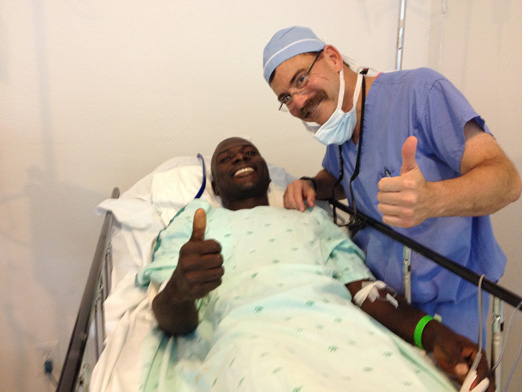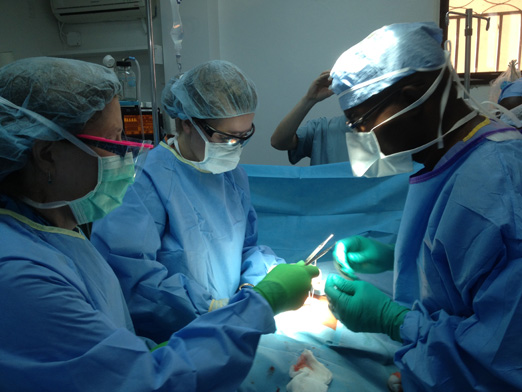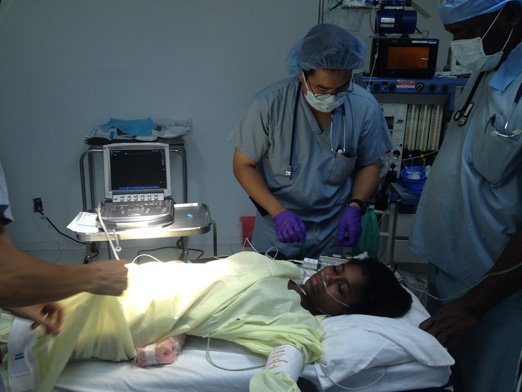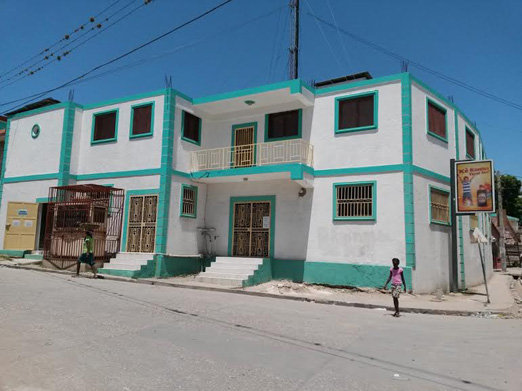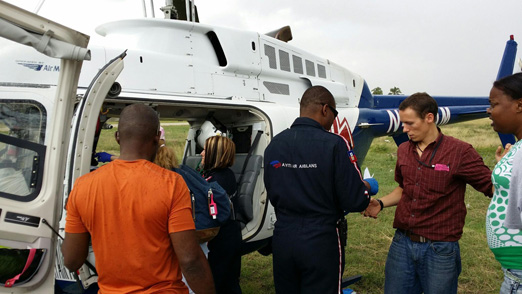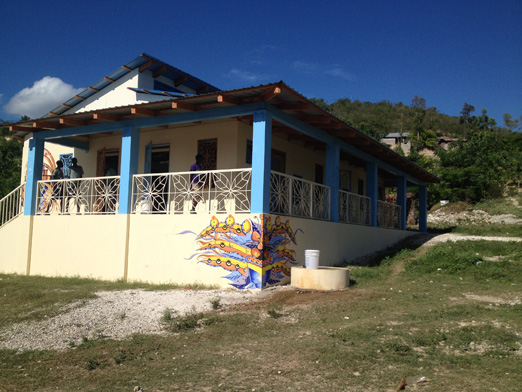Wayne Reichman’s first trip to Haiti in 2013 left him speechless.
“When I got home, I couldn’t talk about the experience for a few days,” he said. “I needed some time to process it all.”
The rubble from the 2010 earthquake still littered the city of Jacmel. Many roads remained unpassable and homeless families continued to struggle.
“Haiti is the poorest country in the Western hemisphere,” said Reichman, M’83. “So many of these people literally have nothing. I simply wanted to do what I was trained to do as a doctor and surgeon – help the less fortunate.”
So Reichman began transitioning out of his vascular surgery practice in Baltimore two years ago to become the medical director of the Jim Wilmot Surgery Center in Jacmel, Haiti. Opened in 2012 and operated by the non-profit Community Coalition for Haiti (CCH), the center provides free surgical care for an impoverished area of 250,000 people and is a sustainable surgical training site for Haitian health care providers. It has three operating rooms, a physical therapy department, pharmacy and primary care clinic.
“The average family earns about $750 a year, so most patients could never afford surgery,” he said. “They are extremely grateful. It can get very emotional.”
Reichman runs the clinic logistics from Baltimore and is on site several a times a year. Other surgeons, nurses and primary care physicians from around the country rotate in monthly, and the clinic typically performs 30 to 40 surgeries a month. Beginning in October, that number will climb to about 75 when more surgeons from all over the U.S. are slated to join the monthly rotation. Each team can comprise student nurses, PT, OT and pharmacy students, med students and residents as well.
Cases include plastic surgical repair of cleft lip and palate, vascular surgery, orthopedics, general surgery, urology and GYN laparoscopic procedures.
“Our clinic is one of the most modern facilities in Haiti,” Reichman said. “We even have air conditioning in the operating rooms and recovery room as well as fluoro and ultrasound capabilities. We don’t have the advanced diagnostic equipment that one would typically expect in the United States. Working in this environment, you become a better diagnostician by relying mainly on your clinical skills,” he said.
“There are no MRIs in Haiti,” Reichman said, “and only one working CT scanner in Port-au Prince that serves a population of about 2.5 million.” The Jim Wilmot facility lacks an ICU ventilator, but he is hopeful two will be donated this year.
Currently eight clinics and hospitals throughout Haiti have partnered under CCH to form a health care alliance to work together to reduce operating costs, but Reichman hopes that number will climb to 12 in the near future. CCH is also planning to build the first pediatric hospital in Haiti to offer oncology, orthopedics, open heart surgery and more.
“It’s pretty amazing what we have accomplished so far,” Reichman said. “There is still so much more to do.”
It’s a good thing, then, that Reichman, 57, has no plans to retire.
“I’ve made a long term commitment to this organization,” he said. “There is a never-ending need.”
Helping the underserved of Baltimore has always been a part of his surgical practice. But completing medical school and his residency, starting a practice and raising a family monopolized his time so traveling to underdeveloped areas was difficult.
“My children are now grown, so it is a good time in my life for this type of service,” he said. “Life is unpredictable and fragile. I often remember the saying that God laughs at those who make plans. I believe that if you want to do something in your life, just go and do it so you have no regrets.”
His wife and two children have also accompanied him on past trips to Haiti teaching in the schools and shooting video for CCH. Vicky, his wife, is a potter and has worked with the schoolchildren teaching them how to make ceramics and their own cereal bowls. The students are ecstatic when their works of art are complete because it means they no longer have to eat off a Frisbee or piece of cardboard.
“This work in Haiti has become a large part of my life,” Reichman said. “It’s a very moving experience to be a part of this. I am more optimistic where this country is headed. I feel like I have re-established my faith in my craft. Being a doctor comes down to helping people.”
By Janet Showalter
